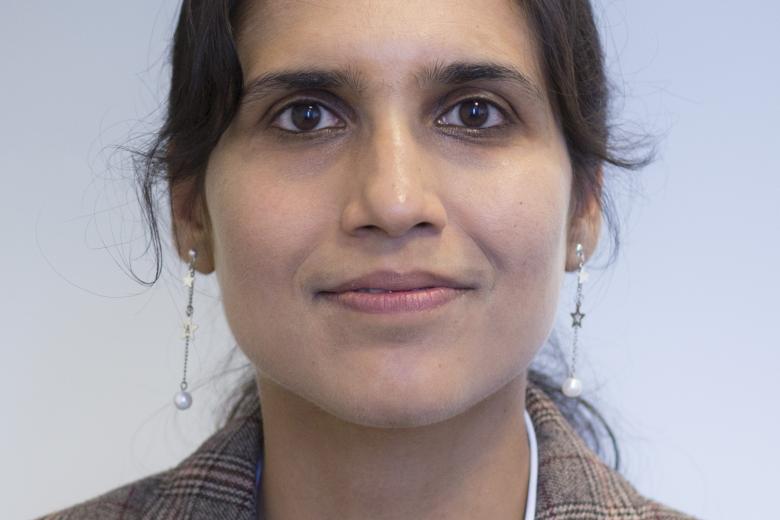Madrid Commercial court refers UEFA & FIFA’s anti-competitive kick to the ECJ
In early 2021, Europe’s twelve leading football clubs joined hands to create the European Super League. Despite the presence of notable clubs such as Liverpool, Manchester United, Milan, Barcelona and Real Madrid, the League soon fell apart. Unable to convince those on the football field, the three clubs - Italian Juventus, Spanish Barcelona and the Real Madrid - joined hands to formally register a complaint before the Madrid commercial court, which in turn has referred some questions to the ECJ. This blog contemplates about the issues referred to therein.
In early 2021, Europe’s twelve leading football clubs, including six English, three Italian and three Spanish clubs joined hands to create the European Super League (or The Super League, SL). The decision to create competition to the incumbent UEFA (Union of European Football Associations) first gained momentum in early 1970s; but it took close to five decades before SL was finally formed. Considering the substantial costs involved to kickstart such a big Europe-wide project, the SL also managed a bridging loan of € 3,98 billion from JP Morgan. However, this funding was dependent on either the recognition of the SL by FIFA and/or UEFA; or, a legal protection from the courts to enable continued participation of SL members in other leagues and competitions.
Despite the presence of notable clubs such as Liverpool, Manchester United, Milan, Barcelona and Real Madrid; the Super League experienced tremendous pressure from the industry incumbents and fissures emerged amongst the founding members of the League within weeks of its formation. The founding six English clubs were the first to throw themselves out of the field under pressure, which put SL in shaky waters within the first month of its formation. The German Bayern Munich and Borussia Dortmund were “neither involved nor invited”; while UEFA and national leagues questioned the sustainability of one such project in the first place. FIFA and UEFA first issued an official statement on 21 January 2021 wherein they refused to recognize the creation of SL and warned that participating players and clubs shall be expelled from future competitions organized by them. This statement was subsequently reissued and sanctions were imposed on participating members on 18th April 2021.
Unable to convince those on the football field, the Italian Juventus, Spanish Barcelona and the Real Madrid joined hands to initiate legal proceedings against UEFA and FIFA (Fédération Internationale de Football Association). UEFA had imposed severe sanctions and penalties on these three clubs for refusing to relent, and stop the proposal. The other nine founding clubs were together required to pay a fine of € 15 million and 5 per cent of UEFA club competition revenue earned in one season and sign a “Club Commitment Declaration” to reintegrate with UEFA. Juventus, Barcelona and Real Madrid still refused to step back. The three clubs, represented by Spanish consultancy A22, formally registered a complaint before the Madrid commercial court, Juzgado de lo Mercantil n.˚17 de Madrid, Spain. In its preliminary injunction dated 1st July 2021, the Madrid Commercial Court ordered UEFA to annul any disciplinary proceedings commenced against the three clubs (1); refrain any of the founding members of the SL from UEFA’s events (2) and render the above-referred fine of € 15 million and 5 per cent revenue and other additional penalties imposed by UEFA on the founding members “inconsequential” (3). UEFA was also required to publish this information on its official website.
In light of the significant questions of sports and EU competition law, the Madrid commercial court also formally made a request for a preliminary ruling to the Court of Justice (Case C-333/21). In its request, the Madrid commercial court requests opinion on the following questions. The first two questions ask, whether FIFA, UEFA and other national leagues’ statutes that require “prior approval of these entities” to “set-up a new pan-European club” like SL, be deemed abusive and anti-competitive within the meaning of Article 101 and 102 of the Treaty on the Functioning of the European Union (TFEU)? This question is deemed relevant particularly in light of the fact that setting up one such club potentially conflicts with and affects the commercial and economic interests of FIFA and UEFA. Further, there exists “no regulated, objective, transparent and non-discriminatory criteria” for assessment of such proposals by these industry incumbents. These entities have endowed themselves with monopoly-like status, as they enjoy the “exclusive power to organize or give permission for international club competitions in Europe”. To ensure compliance, UEFA, FIFA and their members use the threat of sanctions. In the case of SL, which was yet to become fully operational, severe penalties were imposed on all the founding members. The third question, accordingly seeks clarification on whether “the threat to adopt sanctions”, such as exclusion from competition and/or a ban from participating in national team matches is an abuse of the Treaty articles? The fourth question requests clarity on the compatibility of the relevant provisions in FIFA’s statutes with EU competition law. These provisions identify “UEFA and its national member associations as original owners of all the rights” and the exclusive authority to market those rights in the competitions played in their jurisdiction. In its fifth question, the Madrid Commercial Court enquires whether FIFA and UEFA’s conduct to prevent the growth of SL is a restriction on competition within the meaning of Article 101 TFEU, such that it restricts innovation, limits consumer choice and eliminates potential competition on the market? Could such a conduct benefit from “exceptions laid down therein” or could it be “covered by an objective justification”, such that the conduct may overall, escape liability? The sixth question enquiries whether the relevant provisions in FIFA and UEFA’s statute restrict “one or more fundamental freedoms” as recognized in Articles 45, 49, 56 and/or 63 TFEU? Article 45 offers free movement to workers; Article 56 offers freedom to provide services; Article 49 promises freedom of establishment and Article 63 concerns free movement of capital.
There have been instances whereby sports’ governing bodies have put restrictions on the conduct of players. In International Skating Union (ISU), the General Court (T-93/18) found ISU’s conduct to restrict participation of its members in other external events as anti-competitive withing the meaning of Article 101 TFEU.
"Given that the 2014 Eligibility rules provided for severe exclusionary sanctions on athletes participating in international speed skating events not organized or specifically authorised by the ISU, including a lifetime ban, and given the absence of a direct link in those rules with legitimate objectives, such as the integrity of the sport, the protection of athletes’ health and safety or the organization and proper conduct of sport, the content of those rules suggests that they have an anti-competitive purpose, namely to restrict the possibilities for professional speed skaters to freely engage in other international speed skating events organised by third parties, and to thereby foreclose (potential) competing speed skating events organisers from the athletes’ services which are necessary to organise competing international speed skating events. In the absence of the Eligibility rules, professional skaters would be able to provide their services to third party organisers of alternative speed skating events, even if they have not been authorised by the ISU. (Para 163, see references therein)."
Further, even if these restrictions were somehow justified by any legitimate reasons, they were still anti-competitive in nature.
"Even if it was established, as the ISU argues, that the Eligibility rules also have other, entirely legitimate objectives, such as the protection of the integrity of the sport, this does not bar the possibility of finding a restriction of competition by object. (Para 171, see references therein)."
As the reference to the ISU (currently pending appeal before the Court of Justice C-124/21 P) indicates, the SL case is not one off. In ISU, the GC upheld the findings of the Commission that the ISU Eligibility rules were a restriction of competition under Article 101(1) and that they could not benefit from an exemption under Article 101(3) (Para 302). The Commission had earlier, indicated its reluctance to engage in the matter, while expressing interest that the rules be defined in a transparent and non-discriminatory manner to ensure the “autonomy and the self-regulation of sports organisations”. Following this, the Spanish consultancy A22 approached the Madrid Commercial Court, which in turn made a preliminary reference to the ECJ (European Court of Justice). It may well not be before early 2023 that the fate and the future of the SL is decided. The outcome on the merits in the SL case may eventually impact the rules of the game, and how football matches are organized and played across Europe.
| More blogs on Law Blogs Maastricht |
K. Tyagi
Kalpana Tyagi is Assistant Professor of Intellectual Property and Competition Law in the European and International Law Department, Maastricht University. She holds a multidisciplinary PhD (summa cum laude) from the Max Planck Institute for Innovation and Competition, Munich where she worked as Max Planck Fellow for Innovation and Competition until 2015.

-
Mind if I mine?
The EU recently introduced text and data mining exceptions to copyright infringement. However, they are too narrow and situation-specific to enable scientific development. In my master thesis, I suggest adopting a non-enjoyment exception for new technological uses, including text and data mining.

-
Protecting trade marks in virtual reality
While the trade mark system seems to embrace the expansion of trade marks to Virtual Reality, an intervention is required when an interplay between the virtual and real-world exists.

-
The implementation challenge of art. 17 CDSM directive: an “institutional” option?
Constructing a functioning single market for business and trade among the Member States of the European Union (EU) has been the cornerstone of the EU project, and remains one of the strongest drivers for EU-level legislative reform. Over the years, the EU has prioritized the harmonization of...
